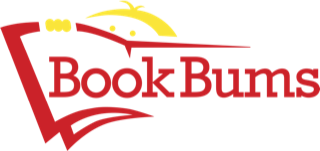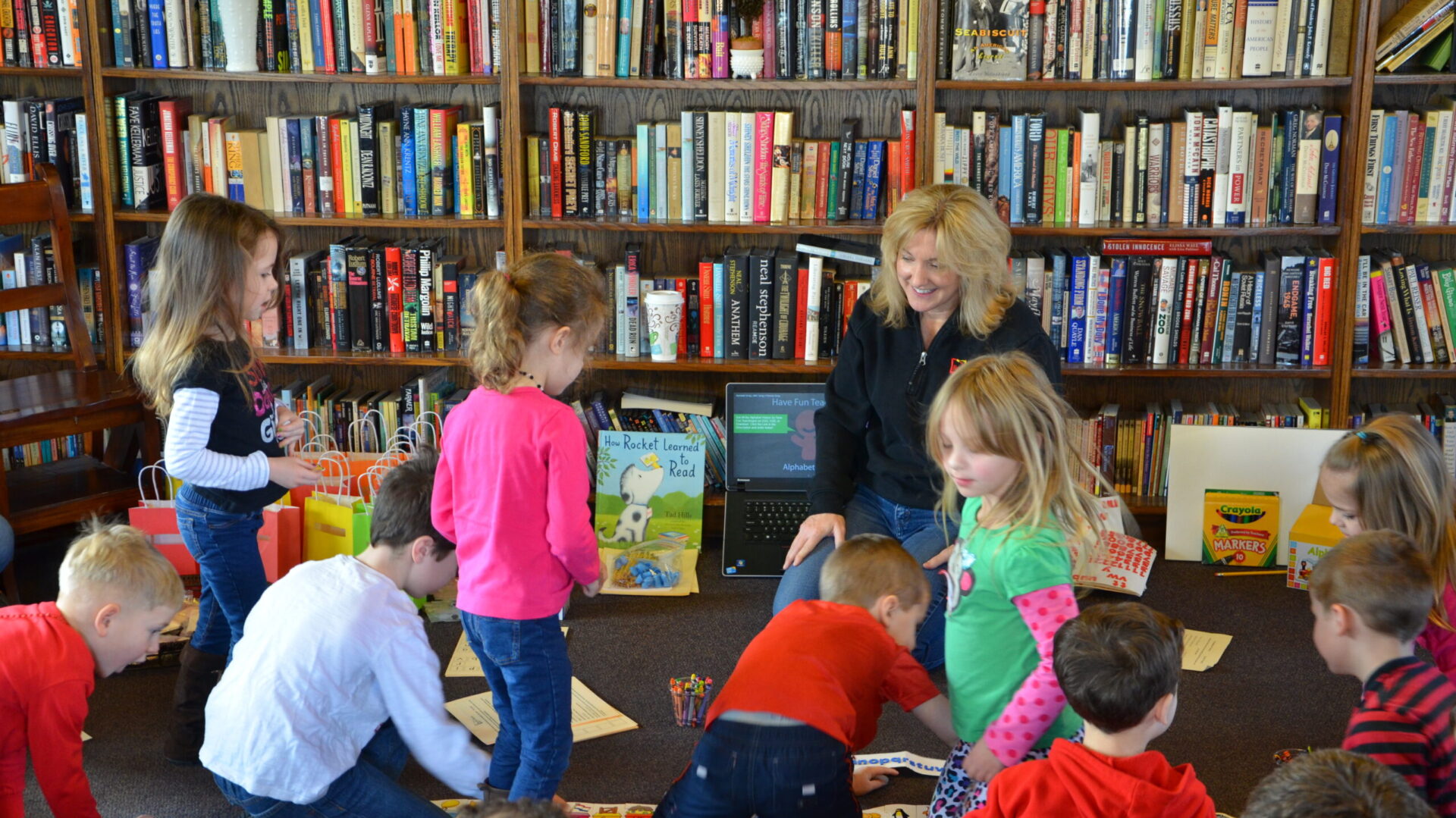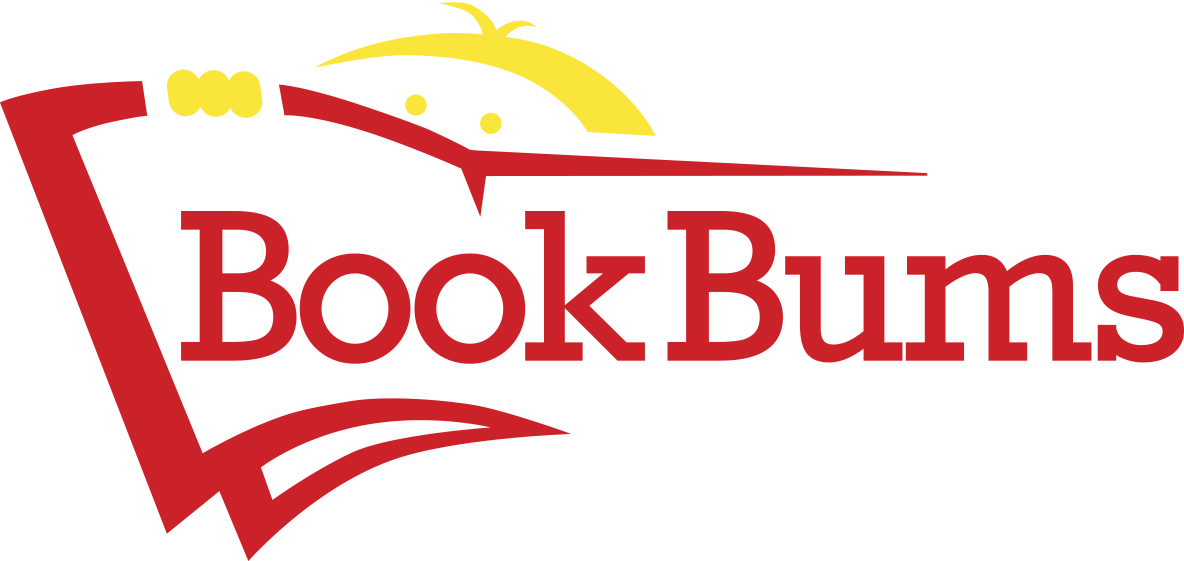
Hello Book Bums families!
Back to school season has arrived! At Book Bums we love all those new notebooks and sharpened pencils, so much potential! This week in the newsletter we have some book recommendations to keep you focused on that potential. While school bells are ringing we share a poem about different kinds of bells. And Dr. Christy dives deep into those beginning of school standardized tests.

Bookbums.com is an Amazon Associate; We earn from qualifying purchases. This means that if you click on a link to Amazon.com and make a purchase, We may earn a small commission at no extra cost to you. We do recommend the products. Feel free to find them by other means.
Word of the Week
tintinnabulation (tin-tin-nab-you-lay-shun) noun/person, place, or thing - a ringing or tinkling sound
The wind chime created a pleasing tintinnabulation in the breeze.
Literary Calendar
• August 22 is World Folklore Day.
• Folklore refers to the traditional customs, tales, sayings, and art forms of a culture.
• You can mark the day with a trip to the library. Look for Dewey Decimal number 398 and browse the stories from cultures around the world.
• These books are a lot of fun for kids to explore. Sometimes the same story even shows up in different version from different countries.
From our Bookshelves
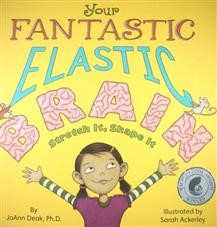
Your Fantastic, Elastic Brain: A Growth Mindset Book for Kids to Stretch and Grow Their Brains, by JoAnn Deak Ph.D. is fact-filled and promotes the idea that we aren’t born smart or not smart. We aren’t cursed with bad genetics that hold us back or good genetics that ensure success. Everyone can learn and grow. Everyone can improve his or her skills.
Dr. Christy’s favorite quote from the book- “Making mistakes is one of the best ways your brain learns and grows. If you aren’t willing to risk being wrong, you won’t take the chances that stretch your elastic brain.”
One damaging thing that parents might say is, “She’s no good at math. Reading is her strength.” Please adjust that and add one simple word. Yet. She’s not strong in math, yet. Please do not count your kids out of anything. With excellent instruction, your child just might surprise you. That’s unlikely, however, if they hear you saying they’re no good. Maintain high expectations, and your kids are likely to meet or beat those expectations.
If you like this kids' book, you might also enjoy this book for adults:
Mindset: The New Psychology of Success by Carol Dweck informs much of how excellent educators approach teaching kids.
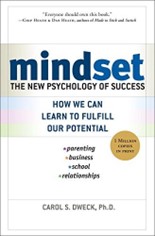
“Kids love praise and parents love giving it. So, when your child comes to you with an A on his math paper, you can either go the fixed mindset route and say, ‘You’re so smart’ or you can go the growth mindset way and acknowledge the effort he or she put in, saying, ‘Wow, you really worked hard on that paper!’” (Rhodes, 2015)
To develop a growth mindset, do the following:
1. Approach tasks with a strong belief that you have the capacity to accomplish what you set out to do.
2. Remember that failure in a task is an opportunity to learn.
3. Commit to lifelong learning. Remain curious.
4. When striving for anything worthwhile, we are bound to face obstacles. Expect and embrace challenges.
5. When you love what you’re doing, it’s easier to succeed.
6. Be tenacious.*
7. Let others’ accomplishments inspire you and not hold you back. Remember, you can inspire others, too.
*Need a quick reminder of what tenacity looks like? Watch Rudy on Hulu or Netflix.
From the movie Rudy: “You’re 5 foot nothin’, 100 and nothin’, and you have barely a speck of athletic ability. And you hung in there with the best college football team in the land for two years. And you’re also gonna walk outta here with a degree from the University of Notre Dame.” (Oh! Good stuff!)
Tips for Families
How Families Can Help Kids (2nd grade or older) Score Well on the MAP Assessment
1. Read books to your kids that are far beyond their reading levels and talk long about the big ideas. Background knowledge is key in improving kids’ reading comprehension. Expose your kids to lots of fact-filled books, programs, experiences, movies, etc.
2. Read books from LOTS of genres. You’re not doing your kids any favors when you read a whole series to them. I challenge you to read at least one of each of the following: historical fiction, fantasy, science fiction, realistic fiction, mystery, nonfiction, poetry, fables, adventure, biography, and autobiography. It does not matter if the children LOVE a particular series. Read only one. The first one. And encourage your child to read the next one independently. The aim is to expose our students to many kinds of books, even if you’re not sure they’ll enjoy them. You owe it to your students to introduce them to all kinds of books. You may just stumble upon more books your kids are crazy about!
3. Talk about your kids’ RIT scores. When done well, kids are often quite driven to improve. Remember, embrace the growth mindset!
4. Be deliberate in building your kids’ vocabularies. This should not feel like work. Find fun ways to grow your kids’ word knowledge.
5. In football it is often said, “Low man wins.” With the MAP assessment, “Slow man wins.” The hardest thing about this assessment is that, to score well, kids must have learned to persist. They must learn to refocus themselves when it begins feeling too hard. If kids are not able to read for nearly an hour, independently, by the end of second grade, they are not likely to score well. Try to stretch kids’ independent reading times to an hour or more.
6. Kids should not be relegated to “just right books.” When kids have never grappled with challenging texts, they don’t know how to navigate them. On the MAP test, your kids will have challenging texts.
7. Talk about authors’ craft that you observe in the books you read together. Notice similes and metaphors. Be sure your kids know what idioms are. Talk about the point of view and how it influences the story. Notice interesting words: prefixes, suffixes, compound words, synonyms & antonyms, and homophones.
8. Ask your child’s teacher for the breakdown that shows which questions your child missed.
9. Remind your kids that their MAP scores reflect how well their teachers are moving them forward. If they haven’t learned something yet, they will (hopefully) get that instruction later in the year.
10. Be sure your kids, after reading any text, can answer the following:
• Who’s the main character?
• What’s the (main) problem?
• When is the story taking place? (long ago, present day, in the future/winter, spring, summer, fall)
• Where is the story taking place?
• How was the problem solved?
• Which character is most like you? Why?
You should know that it is quite possible for kids to improve their RIT scores, in one school year, by 30 to 40 points! At Book Bums, we see this a lot.
Of course, if your kids cannot read words accurately, it is likely that MAP test-prep activities aren’t going to be enough. Kids need to have explicit, systematic phonics instruction so they can read the words on the test pages. In kindergarten and 1st grade, the test is read to the students. In 2nd grade, kids read the test independently. Don’t be surprised if that initial second grade score shows a big drop. That’s fairly normal—unless the students have been in phonics-focused tutoring over the summer months.
If your student scores a BR- Beginning Reader, your child probably will benefit from some one-on-one tutoring that focuses on decoding. Email Dr. Christy to learn more.
Tips for Readers and Writers
Tips for Teaching Readers
It’s that time of year when teachers are sharing tips for helping kids to become good readers. The problem is that many teachers don’t realize that what they’re teaching is misguided. These teachers are certainly not the enemy, here. They’re doing what they’ve been taught is best for kids. They’re using resources provided by their districts. The problem is that schools across America have been using flawed curricula that are not supported by research.
When your kids are reading, do not encourage your kids to “pick a strategy” to “word solve” using strategies such as:
1. Use the pictures (to guess what the word could say).
2. Look for little words in big words. (I see eat in the word great, but that doesn’t help me. I see the word hop in the word hoping but this word does not say hopping.)
3. Does it remind you of another word you know? Again, not helpful. Have and gave look a lot alike. (Kids need to understand how words work.)
4. Use context clues from surrounding sentences to guess what the word could say. (Kids should not have to guess what words say. They may guess word meanings, but they should be equipped to decode most every word on the pages they read.)
5. Skip the word and read on. (Do this enough, and comprehension is lost.)
Pause for Poetry
"The Bells" stanza I
by Edgar Allan Poe
Hear the sledges with the bells—
Silver bells!
What a world of merriment their melody foretells!
How they tinkle, tinkle, tinkle,
In the icy air of night!
While the stars that oversprinkle
All the heavens, seem to twinkle
With a crystalline delight;
Keeping time, time, time,
In a sort of Runic rhyme,
To the tintinabulation that so musically wells
From the bells, bells, bells, bells,
Bells, bells, bells—
From the jingling and the tinkling of the bells
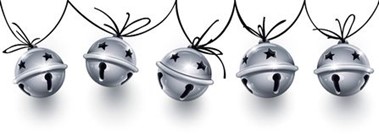
Practical Grammar
Have you been noticing people using the word awe on social media posts when they’re expressing sympathy, disappointment, or a melted heart?
This is a spelling error. Aw is the correct spelling when one is using it as an interjection. (e.g., Huh? Whoa! Meh.) Awe is reverential respect mixed with fear and/or wonder.
Aw, that’s the cutest picture!
I’m in awe of how quickly she finished her degree.
If you know someone who would benefit from our newsletter or tutoring at Book Bums, please share this email with them! Thank you.
Copyright © 2024 Book Bums, All rights reserved
Our mailing address is:
7967 Cincinnati-Dayton Road Suite L
West Chester, OH 45069
